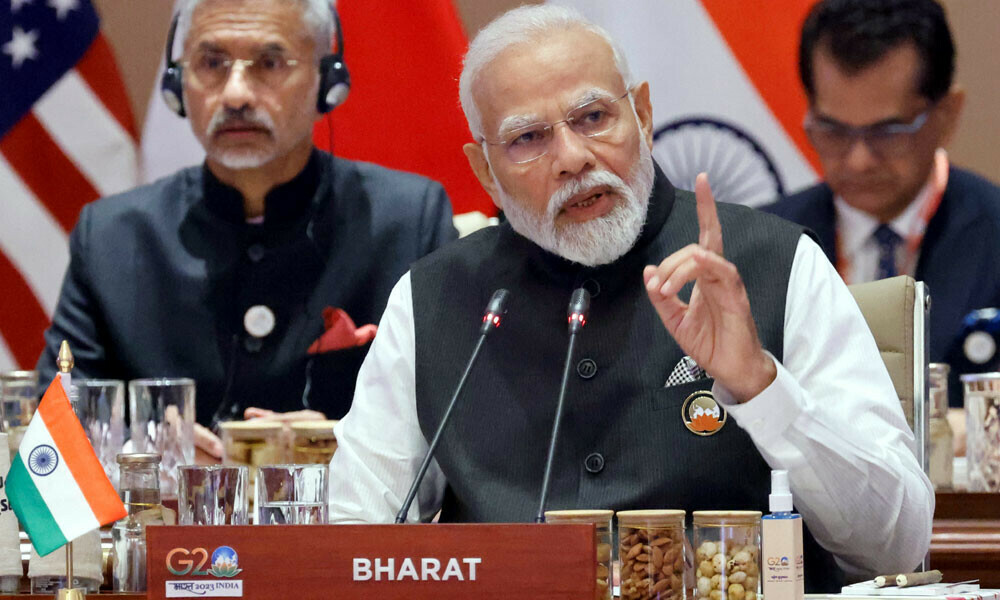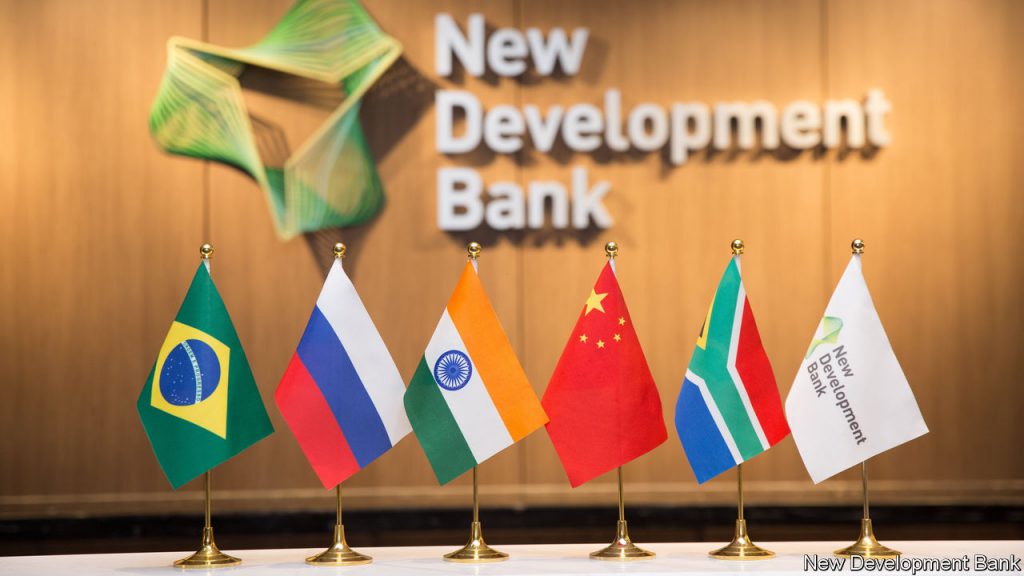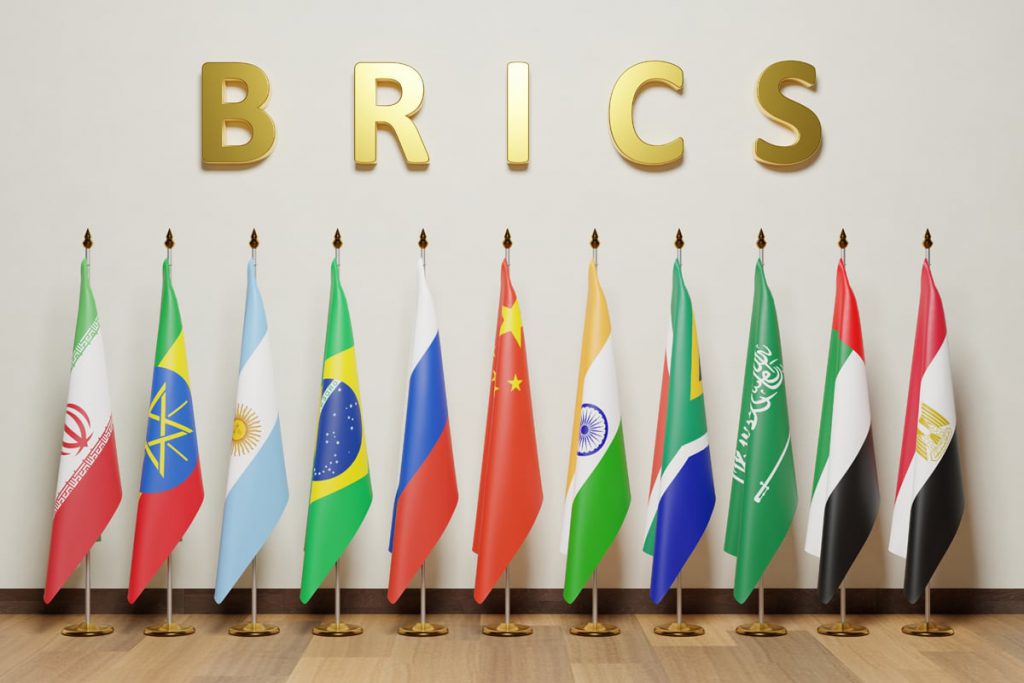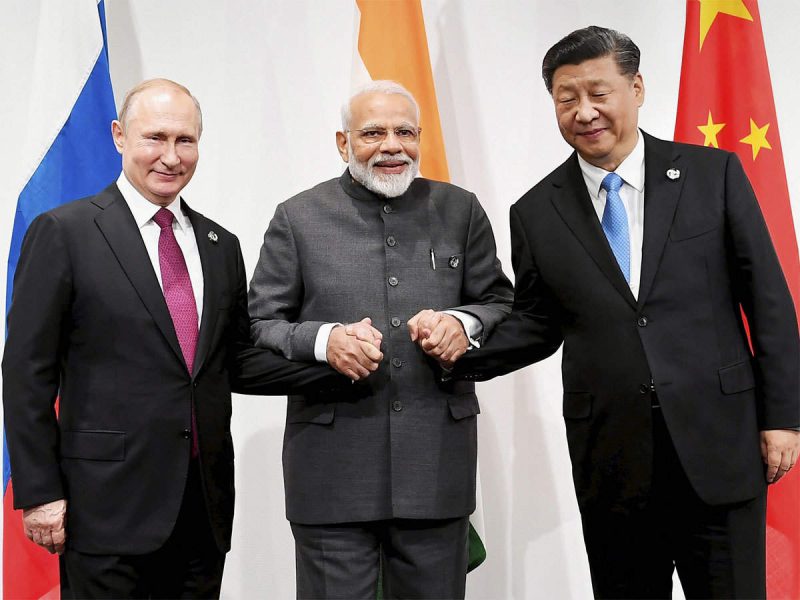Although much has been made about the expansion plans for the BRICS bloc, there is no denying the tension that is already present among its existing members. The presence of the occasional dissension has led the BRICS grouping to face India’s potential exit from the alliance.
Over the last several weeks, the country has made concerted efforts to distance itself from the greater collective. However, those acts have specifically seen it embrace its Western relations. The overall setting looks to create a controversial situation in which one country could be on the way out.
Also Read: US Monitoring BRICS Digital Currency Push Amid Dollar Decline
India and BRICS: What Has Gone Wrong?


For much of the last year, the BRICS alliance has enjoyed unrelenting growth. At its 2023 annual summit, it invited six nations to join its ranks. Of those invitations, five countries accepted expanding the group to 10 member nations. Moreover, the presence of Saudi Arabia and the United Arab Emirates (UAE) continued to reinforce the important voices bringing seats to the table.
However, what has always been an issue with the BRICS grouping is the seeds of conflict sown into its creation; specifically regarding India and its place in the alliance. That took a massive hit when the implemented Russian sanction created a more complicated oil purchasing procedure for the bloc.


Also Read: Another New Country Expresses Interest To Join BRICS Alliance
Since 2022, those Western-implemented sanctions have led Russia and India to agree on a massive oil deal that heavily benefitted the latter. Specifically, it saw nearly $7 billion in savings from the purchase of Russian oil at a discounted rate. Additionally, the two sides agreed to settle the deal in local currencies. The move furthered the de-dollarization it had employed.
However, the issue arrived when Russia ordered compensation to be paid in the form of the Chinese Yuan. The currency was far more valuable in a BRICS context than the Indian Rupee, but the tension between India and China had led to a less than enthusiastic response from the country.
That all culminated in the recent development that India was purchasing oil from the United States. Specifically, Bloomberg reported the increased acquisition from the West amid Russian sanctions. Considering the anti-Western posturing of the BRICS alliance, the development was certainly met with anything less than enthusiasm.
Could The Alliance Lose a Key Member?


Also Read: BRICS ‘Ready To Work’ With All Countries To Ditch US Dollar
The ongoing issue now involves what the outcome could be. The BRICS alliance has committed to lessening international reliance on the United States dollar. However, one of its most important members is now utilizing that currency to purchase oil that it is no longer accepting from Russia.
The conflict between China and India has often been a point of concern regarding BRICS growth prospects. The two sides have consistently fought, with neither offering to give up ground on their opinions. But, could the alliance afford to lose India, as one of the fastest-growing economies on the planet?


Also Read: BRICS: Central Banks Preparing for US Dollar Collapse
Although that would be less than ideal, the bloc will need to asses its current state, and decide what it can live with. The ongoing de-dollarization plans are counter-intuitive to India’s actions. Moreover, expansion can be viewed as an attempt to include a nation that is more willing to work within the established parameters.
Conversely, watching India exit the alliance due to a disagreement regarding currency settlement is counter to the alliance’s mission in the first place. The economic collective has sought to create a multipolar world based on cooperation and understanding. They have often spoken of the necessity for these countries to work for the good of the whole, not the individual.
For India to leave, the message may stand against the perspective. Subsequently, the alliance must decide if that is something that it can live with as an alliance. It does not appear likely that India will leave, but the prospect can certainly not be ruled out at this point.





